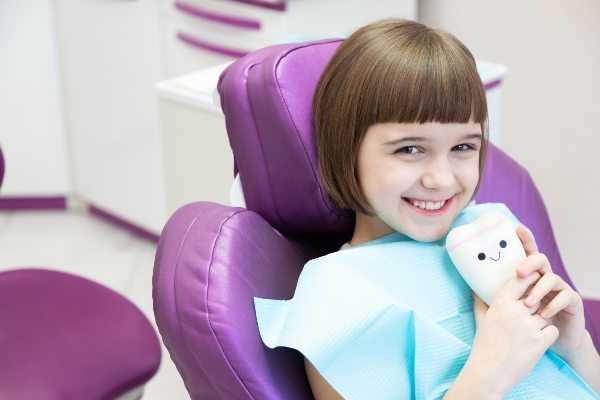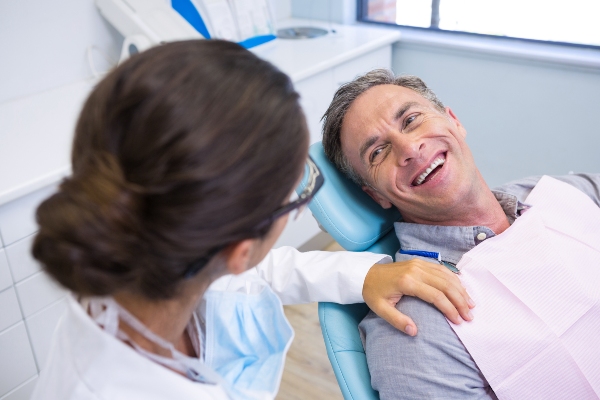 A healthy smile requires a lifetime of focusing on oral hygiene basics. Even if your child has healthy teeth and a history of proper dental care, reviewing best practices helps maintain good daily habits. During your child's routine teeth cleaning, a pediatric dentist can help answer any questions about caring for their teeth. In the meantime, this article will share a few helpful tips on how children can maintain a healthy smile.
A healthy smile requires a lifetime of focusing on oral hygiene basics. Even if your child has healthy teeth and a history of proper dental care, reviewing best practices helps maintain good daily habits. During your child's routine teeth cleaning, a pediatric dentist can help answer any questions about caring for their teeth. In the meantime, this article will share a few helpful tips on how children can maintain a healthy smile.
4 tips for a healthy smile
Parents can assist their children in focusing on the details of oral hygiene basics to help them maintain their natural, healthy teeth for a lifetime. Explore these tips below.
1. Brush teeth properly
Most parents know that pediatric dentists recommend brushing twice daily. Brushing before bed is important to eliminate the germs that build up throughout the day. A child's brushing technique is just as important as the frequency of brushing. Let the child take their time, gently brushing while giving attention to all surfaces of the teeth. Brushing the tongue is also important, as plaque can build up and cause bad breath.
Using the correct products will improve the chances of good results. Pediatric dentists typically recommend fluoride toothpaste and a soft appropriately-sized toothbrush for the child's mouth.
2. Do not neglect the gums
Flossing is just as important as brushing. Flossing removes pieces of food stuck between teeth and eliminates plaque, stimulating the gums and reducing inflammation in the mouth. One good flossing session a day is sufficient to reap these benefits.
If traditional floss is difficult, several alternatives include pre-threaded floss, interdental brushes, water flossers, dental picks, and soft picks. Parents should ask their pediatric dentist which tools are best for their child. A fluoride mouthwash is a good supplement to an older child's oral care routine. It can assist in killing bacteria, reduce the mouth's level of acid, clean hard-to-reach areas, and remineralize the teeth. However, mouthwash is not recommended for younger children and is not a replacement for brushing or flossing.
3. Eat and drink healthy foods
Diet is an important part of healthy oral hygiene basics. Parents should help their children follow these recommendations:
- Drink water: Water is excellent for one’s overall health, including oral health. Also, drinking water directly after a meal may help eliminate the stickiness and acidity of foods that can damage tooth enamel.
- Eat fresh produce: Crunchy fruits and vegetables are helpful for teeth, not only for their vitamins and minerals but also because chewing stimulates saliva production, which helps to clean away bacteria and food particles.
- Avoid sugary foods: Sugar converts into acid in the mouth, and the acid erodes tooth enamel. Fruit juice, tea, coffee, and other highly acidic drinks can also damage enamel.
4. Visit a pediatric dentist regularly
Even if a child is conscientious about brushing, flossing, and eating right, they still need that twice-annual dental visit. The pediatric dentist will give the teeth a good cleaning using specialized equipment to remove hardened plaque (tartar). They will then provide a thorough examination of one’s oral health to spot potential problems and create a treatment plan. Periodic X-rays will also show what lies beneath the gum line to ensure there are no hidden problems.
Schedule a dental checkup today
Having your child incorporate these tips into their daily routine can improve their oral health for years to come. In addition, our pediatric dentist can provide more personalized dental advice at their next teeth cleaning. To schedule an appointment, call 845-363-4177 today.
Request an appointment or call Hudson Valley Pediatric Dentistry at 845-363-4177 for an appointment in our Middletown office.
Recent Posts
Having a solid handle on oral hygiene basics will help preserve the integrity of a child's teeth and mouth health for many years to come. Steering clear of cavities, receding gums, or decay ensures their smile is bright and beautiful for as long as possible. If your child believes they already have an excellent oral…
When you and your child visit the dentist, you expect to get your child’s teeth cleaned and learn the current state of their dental health. However, many parents overlook the expertise dentists can provide about the important aspects of oral hygiene basics.In addition to caring for teeth, dentists can offer helpful recommendations for young patients…
In order to maintain your child's healthy teeth and gums, you should follow the oral hygiene basics recommended by a pediatric dentist. These practices, including brushing and flossing, should be done twice and once a day, respectively. However, it is common for children to forget to maintain these habits. Failing to observe oral hygiene basics…


